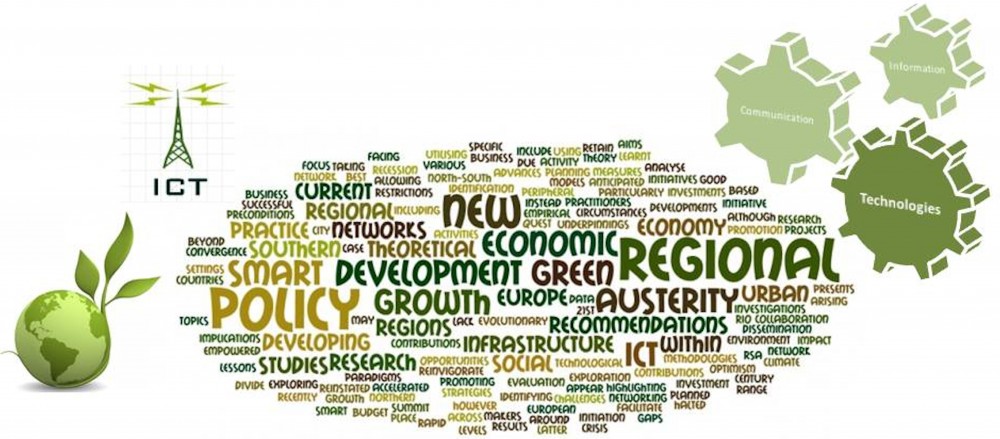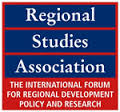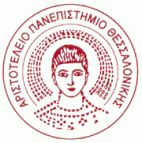
Workshop title:
Theory and practice of using ICT to facilitate smart and green regional development
Workshop host: Professor Panagiotis Papaioannou
Report by: Dr Nikolas Thomopoulos, Prof.Panagiotis Papaioannou, Dr Ioannis Politis
The second workshop of the Research Network about “Using ICT to facilitate smart and green regional growth” hosted by Prof. Panagiotis Papaioannou took place in Thessaloniki, Greece on 5th-6th June 2014 and was co-hosted with the ENDURANCE research project. The workshop theme was: “Theory and practice of using ICT to facilitate smart and green regional development”. The first day was held in Greek which allowed a lot of students and local authority representatives from all over Greece (e.g. from Athens, Crete, Kavala, Kozani, Serres, Thessaloniki, Veroia, Volos) to join and participate actively. The focus was on the use of ICT and new funding schemes to foster Sustainable Urban Mobility Plans by local and regional authorities which triggered exciting debates between academics, practitioners and policy makers.
Dr I.Politis chaired the first session stressing the role of European networks such as RSA Research Networks or the ENDURANCE research project. Mr I.Kolliousis addressed the improvement potential through evaluation of SUMPs through the prism of the ADVANCE platform, whereas Mr P.Karkavitsas highlighted the importance of consultations and forums to increase public engagement when introducing innovative solutions in cities and regions, particularly those related with public transport. Along the same lines, K.Petrakis referred to the role of local authorities in such processes and underlined the opportunity arising from the current budgetary restrictions. The next session included presentations by Ms F.Mikiki and A.Tsoukala who reported on the regional impacts by the ENCLOSE project in Serres and the plan in Edessa respectively, offering evidence from regional policy applied in practice within the contemporary economic environment in Greece. The focus shifted subsequently to urban and regional planning addressing the need to consider the benefits of pedestrianisation and integrated approaches with presentations from Prof.P.Tournikiotis and Mr Angelidis. The final session, co-ordinated by Prof.P.Papaioannou, triggered a lively discussion with local and national experts, including Mr E.Mitsakis, M.Vougioukas, T.Patsiaoura, G.Dimarelou, A. Giannakou and P.Tournikiotis, regarding the capacity and expertise available in regional and local authorities to implement innovative solutions, particularly where there is a jurisdiction overlap. A key conclusion was the fact that consensus may not be always easy to attain but can be gradually built up and also that Universities should play a key role in this process which could benefit the metropolitan area and wider region. The first day was concluded with a short walk in the city centre and ended with a tasty dinner overlooking the White Tower and the Thermaic gulf.
The second day was held in English and introduced more academic insights since it included two keynote speeches by Prof. Magda Pitsiava-Latinopoulou of the Aristotle University of Thessaloniki on: “ICT use towards sustainable mobility in urban areas” and by Prof. David Allen of the University of Leeds on: “Inclusion and exclusion in the digital city: Reflection on mobile and wireless technology deployment and use in the UK”. Both of these set the agenda for the day and provided common ground to launch the debate about the use of ICT to enable smart innovation in cities and regions, as well as about the often neglected side-effects of technological advancements. The first session of the day focused on innovation in smart cities and issues intertwined with their organisation for diverse city types e.g. Amsterdam, Barcelona, Singapore. The next session provided evidence on how much users value their on-line information based on a ground breaking study of Dr D.Potoglou et al. Then, T.Arriaga-Azkarate described the success of a regional network of entrepreneurs through the use of ICT to promote their business using new technologies and their limited funds. The day ended with another panel discussion which focussed on the lessons which could be learnt and applied in Thessaloniki, Central Macedonia or other similar sized cities and regions with restricted funds available.
Overall, more than 150 people participated in this two-day workshop which generated wider interest around the Research Network themes and triggered a discussion about future events and collaborations. Thus, the Research Network hosts are currently in discussions with presenters regarding input in one of the forthcoming Regions issues which would allow the dissemination of output and lessons learnt to a wider audience. Furthermore, the Research Network Chair is editing a volume about ICT for transport where the support of RSA through these workshops is acknowledged since it was instrumental in exchanging views and information with other contributors. The ultimate objective at this stage though is the continuation of relevant research activities through the potential renewal of this Research Network with the inclusion of new hosts and other collaborators who are keen about smart and green regional development.






